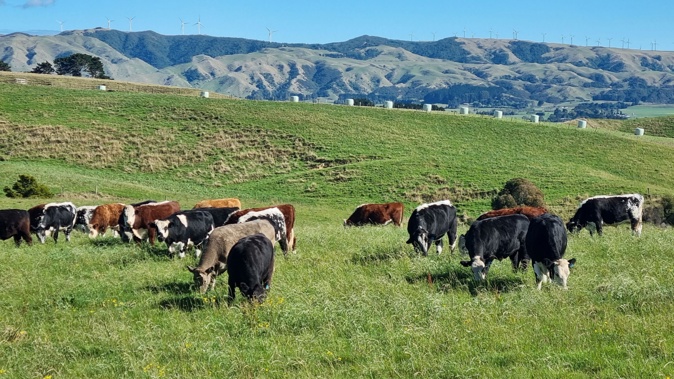
RMA Reform Minister Chris Bishop claims the Government's latest reform will lift farming production and compliance standards as amendments to the act are set to reach Parliament next month.
Among the five amendments to the Resource Management Act (RMA) are repealing rules around winter grazing and changing the restrictions on sloped land. The amendments are intended to be implemented by the end of the year.
The amendments were praised as "common sense" by Federated Farmers spokesman Mark Hooper, who said the announcement was significant in the sense it moved away from a one-size-fits-all approach.
"It's a much more practical, pragmatic and affordable approach to environmental management," he told Newstalk ZB this morning.
"There's a huge amount more change [needed] obviously ... especially around RMA reform and we're looking for a complete remake of RMA ... but in terms of right at the moment, hitting on the key workable regulations, these are the key points."
Most of the policies the Government has introduced through the amendments were signalled in its coalition agreement and Bishop told Newstalk ZB Plus they were developed with input from a variety of agencies.
He said on the changes to the National Policy Statement, officials engaged with iwi, the primary sector, resource management practitioners and environmental non-government organisations.
Asked if there would be any unintended consequences from the Government removing red tape in the farming sector, Bishop was direct in his response.
"No, not at all," he said.
"If anything, removing this additional layer of bureaucracy, which has only burdened primary producers with unnecessary costs, will lift the quality of production and compliance with environmental standards, as farmers have the best knowledge of their land and stocking operations."
Bishop said New Zealand has many regional differences and the previous one-size-fits-all model was not conducive to achieving better environmental results. He said it placed undue restrictions on the country's largest export sector.
Bishop said with the repeal of these restrictive aspects and power being returned to local councils, some councils will tighten their requirements and others will loosen them.
"It’s important to remember the significant work already being done by many farmers, either individually or through catchment groups, to improve land management and the health of waterways," he told ZB Plus.

"That’s often at a significant cost to landowners. It comes in many different forms, such as fencing off waterways to keep livestock out, undertaking riparian planting ... or retiring land. We want to ensure farmers feel trusted to do the right thing. This move is part of that."
The changes to slope rules would address a situation that had forced many farmers to apply for resource consent for winter grazing, resulting in unnecessary costs of up to $3500.
These pressures compounded if farmers needed time and money to prepare the consent applications and undertake consultation with other services.
Hooper told Newstalk ZB farmers had struggled to be at ease farming the way they wanted to with such heavy Government restrictions, and have always been passionate about preserving significant natural areas anyway.
When it came to regulations, Hooper said they had been unworkable.
"It's just added more complex definitions and a more narrow analysis that again, added very little extra environmental benefit."
Hooper agreed with Hosking's perception that farmers were reasonable workers who would treat their land and livestock with care due to their business being at stake, and that the sector didn't require additional Government oversight.
"Yeah, farmers are environmentalists," said Hooper.
"They're passionate about protecting and enhancing what they have and they want to pass it on to future generations so it makes sense."
Take your Radio, Podcasts and Music with you









